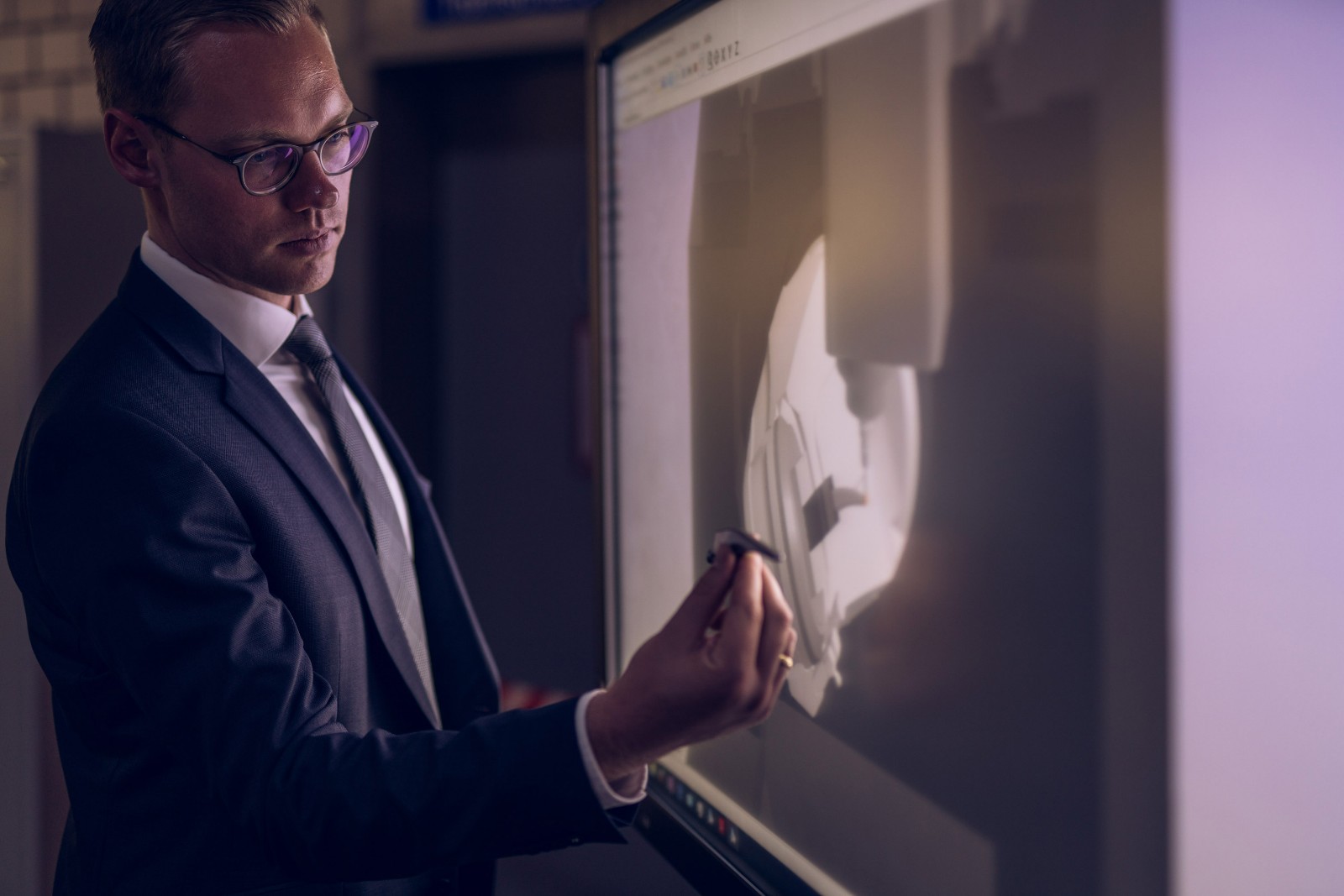By: Kathryn Gerardino-Elagio

Artificial intelligence (AI) is a byword that is circulating everywhere but has not yet really arrived in practice. The reason for this is that the elaborately calculated AI models for specific processes are rigid. If a process changes, for example because other materials are used or a tool wears out, the model cannot adapt. Researchers from Hanover now want to change this and thus bring AI into widespread use.
International Metalworking News for Asia attended an online seminar on how small and medium-sized enterprises will be able to benefit from AI in the future.
During the webinar, Marcel Wichmann, Research Assistant at the Institute of Production Engineering and Machine Tools (IFW) at the Leibniz University Hannover, discussed the manufacturing process chains in the aerospace industry and how AI models can be used in a self-learning process adaption. He first started with a vision of an autonomous production system.
Wichmann said, “Typically, in a production system you have a lot of data. You have the value stream itself; the products, components, cutting tools, and processes. The production systems contain a wide range of useful data but the use of this data is not merged today or currently, and it would enable an intelligent production. So, merging all these data is important to form an autonomous production system. How can we do that?”
He explained, “The problem on which we are looking here is that manufacturing data is not merged today. Knowledge remains at experienced staff. The assistance systems in process planning are rigid, and they cannot adapt to other circumstances. The objective here is to combine different data types to use simulation-based process adaption, and to realise a knowledge transfer to safe resources. In the end, we have the approach of an AI self-learning process adaption, in which we are also using digital twins.”
Wichmann showed the approach in a picture. He stated that typically their processes will start with the chem planning. So, after the design of a new product, they have the computer-aided manufacturing, and after that NC code is generated to run their machine tools.
“We are using our approach but not directly to the process. First, we are using NC simulation; this is a material removal simulation, which enables us to calculate the local cutting conditions between the milling tool and the workpiece for example,” Wichmann described.
“Local cutting conditions are indicators for learning models; and by using these learning models, we can do predictions to adapt our initial process planning. And this adaption is starting before the first real process to have a virtual adaption and optimisation of our processes. In the end, we have optimised NC code.”

Future benefits
To sum it up, the new approach has a high technical and economic potential, from which small and medium-sized enterprises can also increasingly benefit in the future. The new approach offers a high potential for achieving the strict quality and safety requirements of the components. In the regeneration of complex capital goods, digital process twins lead to a significant increase in quality by using adaptive process planning of additive manufacturing and machining. They enable the prediction of process results for individual workpieces and provide a basis for optimisation decisions.
Digital twins within the production of cutting tools also significantly improve the process of tool grinding. A digital workpiece twin is realised by learning process models based on data provided by the machine control in combination with a process-parallel simulation. The precision of the digital twin's model prediction regarding acting forces and resulting workpiece quality is constantly increased by using data feedback. Without any additional effort of the user, an optimised process planning for the reduction of running-in processes can be realised.
In future, the digital workpiece twin of the cutting tool can be used further along the entire process chain. After finishing production, digital twins also support the implementation of intelligent inspection planning. They enable data- and simulation-based quality inspection to significantly reduce inspection efforts. Adaptive planning of quality inspections based on digital twins realises a faster reaction to deviations.
Marcel Wichmann, Research Assistant at the Institute of Production Engineering and Machine Tools (IFW) at the Leibniz University Hannover. As Head of the Production Systems Working Group, his research is concerned with process planning for autonomous and resource-efficient manufacturing.














